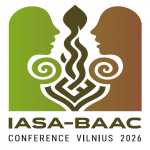General Principles
The introduction has advanced various reasons why cataloguers of oral history recordings are likely to find themselves involved in at least some design work on their documentation. Such work will require a systematic, logical approach but also a degree of flexibility to cope with a changing appreciation of needs. The staff of a new archive may have little experience or clear perception of the future role and users of their collection and there is no real substitute for experience in the evolution of cataloguing and indexing systems that work well in practice rather than look well in theory. Bearing in mind the importance of avoiding at any stage the need for extensive recataloguing or re-indexing of work already done, the problem will be to make the acquisition of such experience as painless as possible.
Certain principles can be usefully applied to new oral history collections. The first and most basic is to avoid over-sophistication. Even a 'specialist' archive may find itself less specialised than its first few interview projects lead it to expect and systems designed too rigidly will look inconsistent with material later acquired. Thus, for example, a catalogue card designed specifically with military careers in mind looks odd and functions poorly when used for conscientious objectors.
A second principle is to concentrate initially on those aspects of the organisational work which are least likely to be open to revision in the light of subsequent experience. Thus first priority should be given to cataloguing which has already been described as an essentially objective or descriptive task; the second priority, to those aspects of indexing which are least likely to cause uncertainty or appear ambiguous; and those areas most open to controversy or subjectivity should be the last to be systematised. An informant's description of a visit to a coal mine by the Prince of Wales, for example, may be simply indexed under date, personality and location. The same informant's opinions on the monarchy, however, may create problems. Cataloguers could disagree as to whether the politics expressed should be indexed as 'Socialism' or 'Republicanism', while later experience of users' expectations might indicate that a single 'Political Opinions' concept would in any case be adequate. A cautious policy of 'wait and see' may save a great deal of trouble although, of course, the cataloguer cannot wait too long for fear of building up too large a backlog of work.
A third general principle for the new collection to apply is the practical determination to operate within a realistic appraisal of available resources and of likely future trends. It is essential that collecting should not press too far ahead of documentation; it is equally important that a conscientious approach to cataloguing and indexing should not hold back the growth of the collection. If resources are limited and likely to remain so, the policy for documentation must take account of those limits. A modest system effectively covering the whole collection is of more use than an ambitious system covering only a part.
Two future trends of which all collections should take note are the probability that they will wish to publish material from their central documentation files , and the possibility - increasingly likely as the necessary technology becomes more available – that they will wish to apply a measure of mechanisation or computerisation to their record keeping and information retrieval work. The two developments may well come together: computer typesetting for the relatively effortless production of printed catalogues is one of the attractions of computer-based cataloguing systems. They both also make the same demands of the cataloguer - principally, an expectation of consistency. The cataloguer anxious for the neat appearance of his work, and looking ahead to publication without expensive proofreading and correction, will consider consistency desirable in any case. The involvement of computers merely makes the desirable essential. Computers are (unless expensively programmed for flexibility) painfully literal minded. To a computer 'Royal Air Force', 'R.A.F.' and 'RAF' will be three concepts, not one. If a computer is to be asked to search or sort the information it stores, then to achieve useful results that information must be both accurate and consistent when it is first recorded. The best method of ensuring consistency is by the early evolution of a set of clear and straightforward cataloguing rules or conventions and strict adherence to those rules once established.


